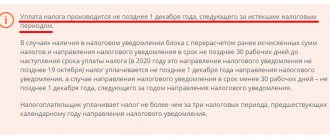In accordance with the Criminal Executive Code of the Russian Federation (Collection of Legislation of the Russian Federation, 1997, No. 2, Art. 198) and in order to improve the work of penal inspections, I order:
1. Approve the attached Instructions
on organizing the execution of sentences and measures of a criminal legal nature without isolation from society.
2. The Federal Penitentiary Service (Kalinin Yu.I.) ensure the implementation of the Instructions for organizing the execution of sentences and measures of a criminal legal nature without isolation from society.
3. Recognize as invalid the orders of the Ministry of Justice of the Russian Federation dated April 12, 2005 N 38 “On approval of the Instructions on the procedure for the execution of sentences and measures of a criminal legal nature without isolation from society” (registered by the Ministry of Justice of Russia on April 25, 2005, registration N 6542 ); dated August 17, 2005 N 134 “On amendments to the order of the Ministry of Justice of the Russian Federation dated April 12, 2005 N 38” (registered by the Ministry of Justice of Russia on August 30, 2005, registration N 6955); dated January 13, 2006 No. 1 “On amendments to the order of the Ministry of Justice of the Russian Federation dated April 12, 2005 No. 38” (registered by the Ministry of Justice of Russia on February 1, 2006, registration No. 7429).
| Minister | A.V. Konovalov |
Registered with the Ministry of Justice of the Russian Federation on June 25, 2009.
Registration N 14140
Application
To
Order of
the Ministry of Justice of the Russian Federation
dated May 20, 2009 N 142
I. General provisions
1. This Instruction determines the organization of execution by penal inspections*(2)
punishments in the form of deprivation of the right to hold certain positions or engage in certain activities, compulsory labor, correctional labor, monitoring the behavior of probationers, convicted pregnant women and women with children under fourteen years of age, who have been granted a deferment by the court
*(3)
.
2. Inspections in their activities are guided by the Constitution of the Russian Federation, federal constitutional laws, federal laws, decrees and orders of the President of the Russian Federation, decrees and orders of the Government of the Russian Federation, regulatory legal acts of the Ministry of Justice of the Russian Federation, the Federal Penitentiary Service*(4)
and this Instruction.
3. Inspections analyze the work in the execution of sentences and monitor the behavior of convicts, prepare statistical reporting in accordance with the acts of the Ministry of Justice of Russia, the Federal Penitentiary Service of Russia, as well as information, analytical and other documents for the territorial bodies of the Federal Penitentiary Service of Russia.
4. Inspections consider applications, complaints and other appeals from convicts and citizens on issues within their competence*(5)
.
5. Inspections organize and conduct office work.
6. Territorial bodies of the Federal Penitentiary Service of Russia provide organizational and methodological guidance, control over the activities of inspections and provide them with practical assistance.
How should a correctional inspectorate summon you to his inspection by telephone or by summons?
Maybe by summons and by telephone. If you avoid it, additional problems will arise.
“Criminal Executive Code of the Russian Federation” dated 01/08/1997 N 1-FZ (as amended on 12/20/2017)
Article 54. Responsibilities of the criminal-executive inspection
(as amended by Federal Law dated December 27, 2009 N 377-FZ)
(see text in the previous “edition”)
1. The criminal-executive inspection keeps records of those sentenced to punishment in the form of restriction of freedom, explains the procedure and conditions for serving the sentence, supervises the convicted and takes measures to prevent violations of the established procedure for serving the sentence on their part, provides assistance to convicts in finding employment, and conducts work with them educational work, applies incentives and penalties established by law, submits to the court proposals to partially cancel or supplement previously established restrictions for convicted persons, as well as to replace the unserved part of the sentence in the form of restriction of freedom with a punishment in the form of imprisonment for convicted persons evading serving a sentence .
“Criminal Procedure Code of the Russian Federation” dated December 18, 2001 N 174-FZ (as amended on April 23, 2018)
""Article 188. Procedure for summoning for interrogation
1. A witness or victim is summoned for questioning by a summons, which indicates who is summoned and in what capacity, to whom and at what address, the date and time of appearance for questioning, as well as the consequences of failure to appear without good reason.
""2. The subpoena is handed to the person summoned for questioning against a signature or transmitted via communication means. In the event of the temporary absence of a person summoned for interrogation, a subpoena is given to an adult member of his family or transferred to the administration at his place of work or, on behalf of the investigator, to other persons and organizations that are obliged to hand over the subpoena to the person summoned for interrogation.
3. A person summoned for questioning must appear on time or notify the investigator in advance of the reasons for failure to appear. In case of failure to appear without good reason, a person summoned for questioning may be subjected to “bringing in” or other measures of procedural coercion provided for in Article 111 of this Code may be applied to him.
4. A person under the age of sixteen is summoned for questioning through his legal representatives or through the administration at his place of work or study. A different procedure for calling for questioning is allowed only if it is caused by the circumstances of the criminal case.
5. The serviceman is summoned for questioning through the command of the military unit.
» Open the full text of the document «
Call
Did the answer help you? Yes No
The FSIN budget is threatened with cuts
There is no great demand in the economy for those sentenced to forced labor. Photo from the site www.fsin.gov.ru
According to NG, an appeal has been prepared to the authorities to reduce the budget of the Federal Penitentiary Service (FSIN) in accordance with the data on the reduction in the number of colonies. Social activists point out that there are no plans to cut the department’s staff, even when it itself is developing plans for the possible transfer of about a third of prisoners to forced labor. The FSIN believes that they could replace foreign labor and bring the treasury about 16 billion rubles. in year. Experts say prison accounting is questionable.
The appeal, which will be sent to the government, the Prosecutor General's Office, the Ministry of Justice and the State Duma, states that huge amounts of money are being spent on the prison system today. The annual budget of the Federal Penitentiary Service is about 300 billion rubles, and is constantly increasing.
As social activists point out, this does not seem logical, since the number of prisoners has already decreased by more than 20% in recent years. The authorities are asked to cut the “artificially inflated budget of the Federal Penitentiary Service,” for example, at the expense of the personnel of the central office, as well as “the abolition of operational departments at pre-trial detention centers and colonies.” Moreover, reduce by at least the same 20% of planned expenses, which will save approximately 40 billion rubles.
NG found out that this appeal is also connected with the recently announced plans of the Federal Penitentiary Service to replenish the treasury at the expense of convict workers. The director of the Federal Penitentiary Service, Alexander Kalashnikov, previously proposed using them in areas where migrants usually work. He specifically explained that this would not be a Gulag, but “absolutely new, good conditions,” implying a decent salary. The department promises such workers accommodation in dormitories or even rented apartments, if, of course, the employer agrees to bear such costs.
In fact, the Federal Penitentiary Service has already calculated that of the 483 thousand people currently in prisons and colonies, about 188 thousand could petition to change their sentence from imprisonment to forced labor. By the way, according to the explanatory note to the draft federal budget for 2022–2024, future income from attracting convicts to paid work is estimated at “15.2 billion rubles.” in 2021 and are projected in the amount of 15.8 billion rubles. in 2022." According to experts, these figures look kind of fantastic.
“What does it mean that the FSIN will earn 16 billion from the labor of convicts? Who will earn them and how? For example, isn’t it the difference between the kopecks that prisoners receive and the considerable salaries of free people?” – human rights activist Vladimir Osechkin was indignant. He believes that the department, in fact, openly says that it will lower production standards for convicts, but will inflate the cost of work for customers. “Or are we talking about the fact that the convicts will be paid 16 billion so that they can pay off claims, buy food and basic necessities, but then what does the Russian budget have to do with it?” – he remarked. Let us recall that earlier the head of the FSIN department for organizing the execution of sentences not related to isolation, Elena Korobkova, indicated that by the end of 2021 the department plans to create up to 15 thousand places for those sentenced to forced labor. “In 2020, almost 12 thousand people involved in forced labor were paid 80 million rubles. into state income,” she explained.
It is easy to calculate that the declared 15.8 billion, even with a maximum deduction of 20% from the prisoner’s salary (minimum 5%), gives a monthly income per person of more than 400 thousand rubles. It is clear that such earnings simply do not exist anywhere. But even if we imagine that we are talking about the labor of all the potential 180 thousand people who can go to forced labor, it still turns out that their salary should be at least 30 thousand - and this is also quite decent money for most regions of Russia .
Human rights activists insist that before talking about replacing foreign labor with convicts, it is necessary to create incentives - “and not Gulag, but market ones.” For example, preferential mortgage programs, assistance with living in decent conditions, but “there is no trace of any of this.” “The FSIN is again asking for hundreds of billions, but it only promises to “earn”, that is, return at least 10% back to the budget. And while the director of the Federal Penitentiary Service is trying to convince the government and deputies of the thriftiness of the prison economy, in a number of colonies, not at all thrifty bosses are buying potatoes for 300 rubles. per kilogram,” noted Osechkin.
According to Ilya Shablinsky, a member of the Moscow Helsinki Group, in reality, in the FSIN system, prisoners are forced to work without any punishment in the form of forced labor. He admitted that “for a certain number of people, such work is better than sitting in a cell.” However, it is quite obvious that major economic problems cannot now be solved with the help of this kind of work. “Migrant workers are, firstly, still free people, and secondly, they usually have some kind of blue-collar skills. Do those people whom the FSIN is going to send to “major construction projects” have them? Or will they have to urgently master these specialties? I can’t really imagine the relationship between convict workers and private employers, such as developers. In my opinion, this is a gradually emerging nostalgia for the times of the Gulag,” Shablinsky emphasized.
Chairman of the Committee of Relatives of Prisoners Elena Brylyakova noted that, while announcing plans to transfer almost a third of prisoners from colonies to forced labor, the department “for some reason does not propose to reduce its own budget by 50–80 billion, respectively.” She believes that 16 billion in income is nothing more than the reasoning of the FSIN generals, although, in her opinion, “to achieve this goal, many times more will be spent on paying prison staff.” However, there are also current production facilities in the colonies - this is one of the largest suppliers in the field of government contracts, a huge industry, and at the same time a Potemkin village: “Hundreds of cases across the country related to slave labor, theft and fraud in industrial zones. There are examples when in colonies they re-tagged the furniture, passing off cheap furniture bought externally as prison production. It’s clear that it was then sold at greatly inflated prices.”
As Alexander Brod, a member of the Presidential Human Rights Council, noted to NG, the idea of en masse involving convicts in paid work has been around for a long time. And it has been implemented in practice through correctional centers for more than one year. Lawyers who consider appeals from convicted prisoners who are in them say that complaints are received about the conditions of detention, and about the lack of medical care, as well as about rough treatment, the unskilled nature of the work, mainly physical. “Perhaps the budget will receive considerable income from the massive use of convict labor, but for now there are more questions than answers. Will their labor rights, sanitary standards be respected, will there be adequate remuneration, respect for the right to rest, and rationing? Will a convicted person be able to insure his life and health against accidents at work? Will he be able to learn a new profession or improve his skills? An important issue is public control over such work,” Brod believes.
As lawyer Vyacheslav Golenev explained to NG, convicts do not have much choice; they are forced to work where the administration tells them. When discussing the initiative to replace guest workers with them, for some reason everyone is silent, because the law does not contain conditions for its implementation. Now this controversial idea, Golenev said, is not based on a legal approach at all, but on a purely economic one. However, with the latter, not everything is at all clear: “Will such workers ultimately be beneficial for business at all? Will this whole story be economically worthwhile? And most importantly, will its implementation respect human rights and dignity or will de facto create conditions worse than those in the colony?” He himself is confident that, given current practice and the lack of clear legal regulation, excesses and coercion cannot be avoided.





